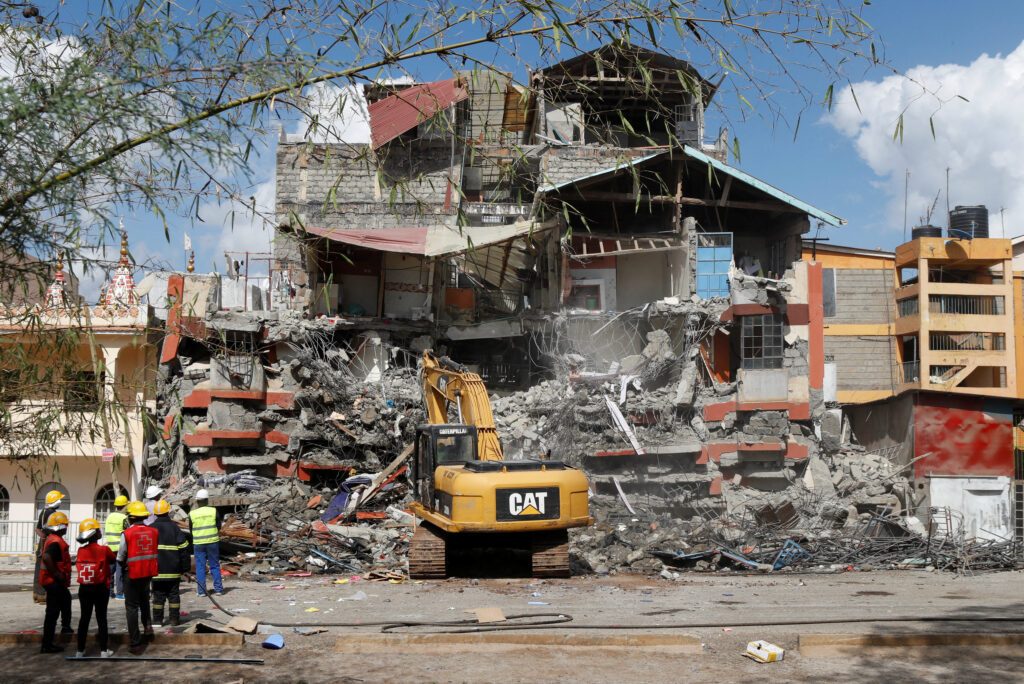Survey highlights critical failings in key areas.

Objectives
This study arose as the result of a Fact-Finding Survey undertaken among members of the CAA’s Knowledge Sharing Partnership, published in July 2024, which identified the failure to design, implement and/or enforce built environment legislation as one of the key barriers to sustainable urbanisation across the Commonwealth.
This survey represents an attempt to understand the underlying issues so that the CAA and its member organisations can identify where strengthening is required so they can better support member states with this vitally important work.
The results of the survey highlight a range of systemic issues with the development of national building codes across a number of Commonwealth countries, including, for some or all:
- The absence of a mandatory national building code.
- The adoption of codes which may not be appropriate for local culture, economy, climate or practice
- The absence of a coordinating body to unify the work of different agencies.
- Scope gaps in existing codes, including a failure to define mandatory energy performance and/or material and workmanship standards.
- The need for codes to be more regularly updated to better reflect global policy priorities, such a climate change, and changes in materials and manufacturing.
- Lack of technical and professional experience, leading to a failure of implementation and enforcement
The survey reveals that these issues are especially acute among Overseas Development Assistance recipient (ODA) countries, many of which are experiencing rapid urbanisation and are among the most vulnerable to climate impacts.
Key Findings
The following are among the survey’s key findings:
General Findings
- Lack of Codes: Several countries still lack a national building code or have fragmented or outdated codes.
- Split Responsibility: Code development is typically a central government function, but implementation falls to local authorities.
- Lack of Access and Transparency: Many codes are not available online, making them hard to access.
- Limited Updating Mechanisms: About two-thirds of countries surveyed don’t have systems to update existing buildings to current standards.
- Regulatory Gaps: A third of ODA countries don’t use Regulatory Impact Assessments when codes are revised.
- Lack of Professional Input: Only 41% engage professionals fully in code development; 6% have no engagement at all.
Building Code Coverage
- Energy Efficiency: Only 11% of ODA countries have a mandatory energy code—a major barrier to climate targets.
- Materials & Workmanship: Only 10% of codes cover these essentials, heightening risk of failure.
- Urgent Needs:
- Unified codes
- Inclusion of embodied carbon
- Support for bio-based materials
Permitting Process Challenges
- Manual Systems: Permitting often remains manual with inexperienced staff and insufficient resources.
- Quality Gaps: An authorised submission doesn’t guarantee build quality.
- Economic Drag: Slow, unpredictable, and sometimes corrupt processes hinder investment and development.
Implementation & Enforcement
- Across ODA countries, building control inspections, certification, enforcement, is generally considered inadequate.
- This hampers proper code implementation and compromises safety and resilience.
Consequences of Weak Control Systems
- Increased risk of structural failure, fire, and climate vulnerability—particularly for urban poor.
- Many governments are not leveraging existing international guidance or meeting voluntary commitments.
Conclusion & Next Steps
- ~750 million citizens lack adequate protection from current codes.
- National codes must ensure:
- Safety and well-being
- Efficient resource use
- Climate resilience
- Economic attractiveness
- Multi-stakeholder collaboration is crucial: government, professionals, manufacturers, safety bodies.
Future Action by CAA
Working in partnership with the Commonwealth Association of Planners and the Commonwealth Layer’s Association, the CAA has supported UN-Habitat with development of a Legal Checklist for Cities that was launched at WUF12 (Cairo, Nov 2024). The checklist is intended to support governments to identify and prioritise improvements to their existing built environment legislation. The checklist utilises a framework that assesses the legal and regulatory environment across different thematic areas, such as land, planning, basic services, housing, and financing. It employs a set of indicators that allow for a qualitative analysis of the legal framework and its impact on urban development.